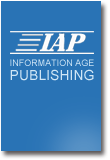
Meaningful Work in the Post Covid Age
The Impact of New Technologies
Edited by:
Timothy Ewest, Houston Baptist University
Sharlene Buszka, Daemen University
A volume in the series: Research in Management. Editor(s): Timothy Ewest, Houston Baptist University.
Call for Chapter Proposals
This volume in the Research in Management Series will explore the impact of Covid-19 and the related accelerated use of technology on factors related to meaningful work. One of the most significant changes resulting from Covid-19 was the shift to teleworking. This was made possible by existing and new technologies such as video conferencing (e.g. Zoom, Microsoft Teams) and electronic messaging (e,g., email, text, Google Chat). Historically, changes in the way we work brought about by the Industrial Revolution (late 1700’s to early 1800s) and multiple subsequent technological revolutions (e.g., The .com boom and bust brought on by the introduction of the World Wide Web in 1991) caused disruptions and stress to the workers impacted. Similarly, temporary or permanent loss of work such as during the Depression of 1930s and Recession of 2007-2009 resulted in increased mental health challenges and workers questioning the existential meaning of work. It can be argued that some workplace changes brought about because of the pandemic are welcome and beneficial (e.g., less time commuting, greater work-life balance). However, it should not be surprising to find some in this post-Covid generation of workers also feeling disrupted, stressed, and questioning the role and meaning of work in their lives - much like their historical counterparts. To support this, it has been noted that since the beginning of the pandemic a record number of workers have been voluntarily leaving their positions. This exodus from work has been termed “The Great Resignation.” The present collection will consider the impact of Covid 19-accelerated technological changes resulting in increased remote work, job loss, work-related stress, increased voluntary turnover and workers questioning the meaning and stability work provides.The editors invite chapter proposals from researchers in business, technology, sociology, health care and education fields. We welcome chapters that include quantitative and qualitative research or conceptual pieces on topics that will enhance understanding of how the interplay of a global pandemic and the increased use of technology impacted the perception of meaningful work. We also encourage case studies that demonstrate the impact of Covid-19 on specific groups of workers (e.g., teachers, healthcare workers) and/or the populations they serve (e.g, students, patients). All contributors should consider how Covid-19 workplace changes have created new challenges and opportunities, as well as how these changes may result in a shift in what workers deem desirable or meaningful work.
TOPICS OF INTEREST:
The Great Resignation
- Data showing trends and demographic breakdown by age, groups, occupations, education level, etc.
- Reasons for this
Increased Use of Remote Work Technologies: Zoom, WEBex, Microsoft Teams
- Industry Differences
Results of Increased Use of Remote Work Technologies: Zoom, WEBex, Microsoft Teams
- Advantages/Disadvantages for Employees
- Advantages/Disadvantages for Students/Clients/Customers
Desire for More Meaningful Work
- How Meaningful Work has Changed
- Creating Meaningful Connections Through Technology
Stress Related to Covid-19 Work Methods and Technology
Declining Interest in Health Care Occupations? Data supporting this Trend Reasons for This
Desirable New Post Covid Jobs/Occupations
The Current State of Remote Work
- Increased Work Life Balance but Less Connection with Co-workers
PROPOSAL INFORMATION:
Proposals should be made on one single-spaced page, and consist of your name and affiliation, email address, a tentative title, and an abstract (200-250 words). Please include an additional page with a brief biography (200-300 words) and relevant professional publications. All proposals should be sent as a single Word file of 2 pages to Sharlene Buszka or Tim Ewest by May 1, 2023.
CHAPTER SUBMISSION INFORMATION:
Authors of accepted proposals will be notified by June 30, 2023 about the status of their submission and sent chapter guidelines. Full chapters, ranging from 7,000 to 8,000 words in Times New Roman 12, double spaced text, inclusive of title, abstract, manuscript, and references, should be submitted as a Microsoft Word email attachment by November 30, 2023. Manuscripts should conform to 6th edition APA style conventions. See Author Guidelines.
Chapters should draw from the author/s own research and include case studies and reflective questions for readers to engage in and think actively about concepts and processes. Central themes should be explained in text boxes to engage the reader in the arguments presented. The end of the chapter should provide a summary of key reflections and insights on the research methodology, and recommendations for further reading may provide a wide range of current sources for further exploration and encourage readers to expand their knowledge.
TENTATIVE SCHEDULE FOR PUBLICATION:
Abstract submission: August 31, 2023
Notification of invite to submit chapter: September 30, 2023
Submission of book chapter: February 28, 2024
Reviews of book chapter manuscripts sent to author: April 30, 2024
Receipt by editors of final draft of book chapters: July 30, 2024
Final book submitted to publisher: August 30, 2024
Anticipated publication: Fall 2024
Send all inquiries to Sharlene Buszka, sbuszka@daemen.edu and Tim Ewest, tim.ewest@gmail.com
BUY ONLINE
- This title is in development and is not yet available to order online. Please call the IAP office for more information: 704.752.9125

CATEGORIES
CLASSIFICATION
RELATED TITLES
-
 Advances in Authentic and Ethical Leadership
Advances in Authentic and Ethical Leadership
-
 Affect and Emotion
New Directions in Management Theory and Research
Affect and Emotion
New Directions in Management Theory and Research
-
 Current Theory and Research in Transforming Organizations
Current Theory and Research in Transforming Organizations
-
 Perspectives on Justice and Trust in Organizations
Perspectives on Justice and Trust in Organizations
-
 Power and Influence in Organizations
Power and Influence in Organizations
-
 Research in Management International Perspectives
Research in Management International Perspectives
-
 The 'Dark' Side of Management
The 'Dark' Side of Management
